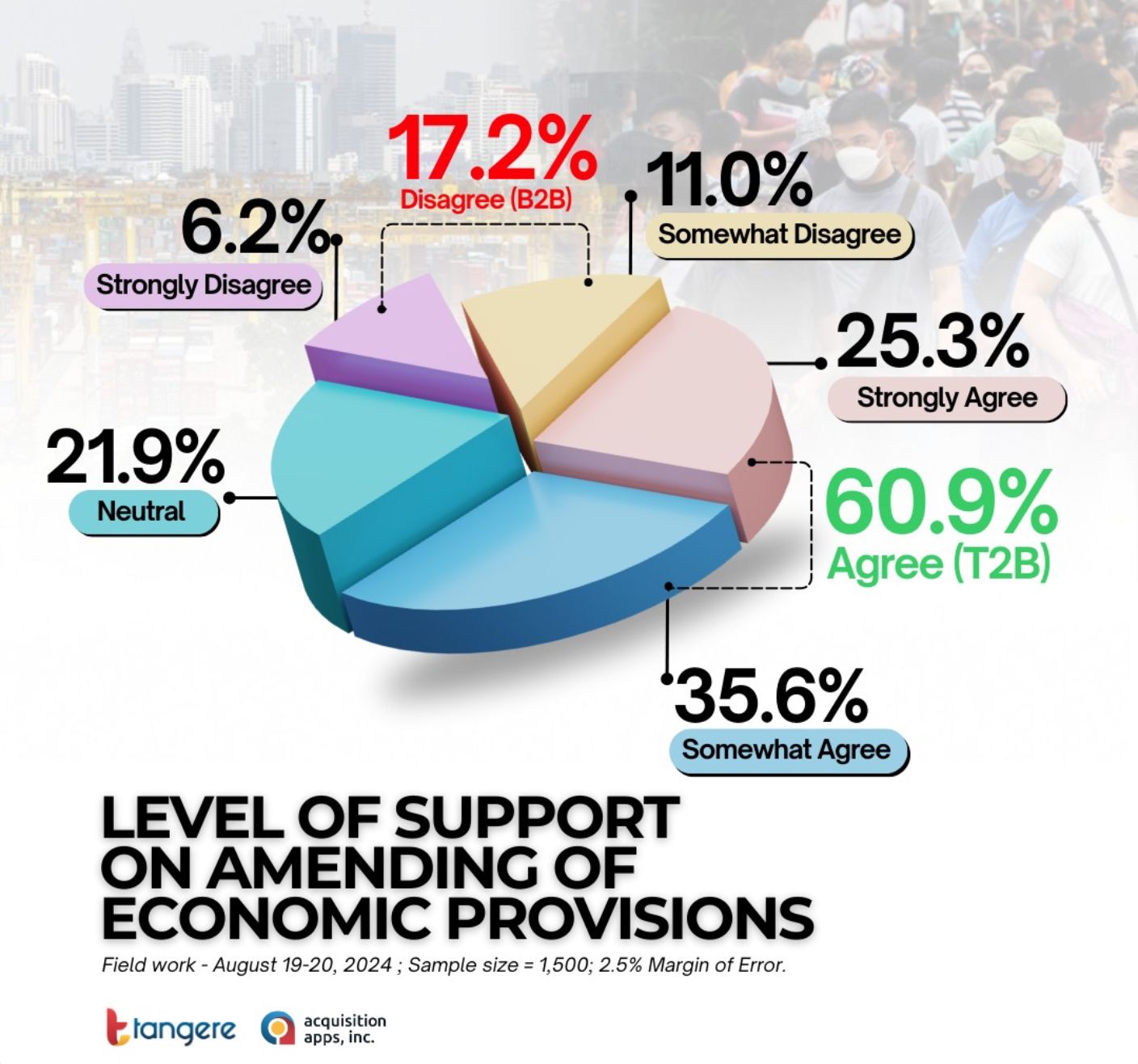Majority of Filipinos still support proposed economic Cha-cha — survey

A survey conducted by market research company Tangere revealed that three out of five Filipinos remain supportive of proposals to amend the economic provisions of the 1987 Philippine Constitution.
Results of the survey, conducted from Aug. 19 to 20, found that 60.9 percent of Filipinos support the proposed constitutional amendment, similar to the previous month’s result of 60.6 percent.
Of the 60.9 percent of Filipinos who agree, 25.3 percent “strongly agree” and 35.6 percent “somewhat agree” with the proposed economic Charter change (Cha-cha).
Meanwhile, 17.2 percent disagree with the proposal (6.8 percent strongly agree, 11 percent somewhat disagree).
About 21.9 percent were “neutral” about the proposal.
Similar to the July 2024 survey results, Tangere observed a “strong” support among respondents from Metro Manila, Northern Luzon, and Central Luzon.
However, disagreement is more common among respondents from Mindanao and Southern Luzon.
When asked about the perceived advantages of the proposed economic Cha-cha, the top five perceived advantages mentioned by respondents were: the creation of more jobs (72.5 percent), a decrease in the prices of goods and services (71 percent), higher economic growth (69.7 percent), increase in salaries and work benefits (69.5 percent), and improvement in the quality of jobs in the country (67 percent).
Meanwhile, when asked about the perceived disadvantages of the proposed economic Cha-cha, the top three responses were: potential worsening of corruption (31.5 percent), increase in foreign competitors for local businesses (28 percent), and various national issues not being prioritized (25 percent).
For the three articles covered by the proposed constitutional amendment, 62 percent support the amendment of Article XII (National Patrimony and Economy) on foreign ownership of public utilities; 60 percent support the amendment of Article XVI (General Provisions) on foreign investments in advertising; and 55 percent support the amendment of Article XIV (Education, Science and Technology, Arts, Culture and Sports) on the participation of foreign entities in higher education
Tangere’s August 2024 survey was administered through a mobile-based respondent application with a sample size of 1,500 participants (+/- 2.5 percent margin of error at a 95 percent confidence level) using a stratified random sampling or quota-based sampling method.
The proportion was spread throughout the Philippines with 12 percent from Metro Manila, 23 percent from Northern Luzon, 22 percent from Southern Luzon, 20 percent from Visayas, and 23 percent from Mindanao.